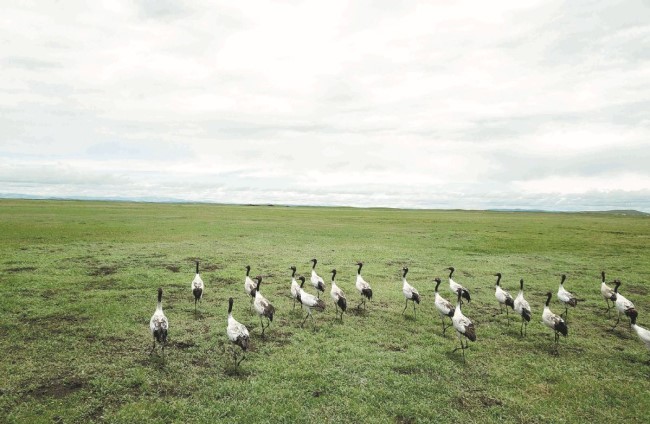
Black-necked cranes gather at Yellow River First Curve National Nature Reserve in Maqu county, Gannan Tibetan autonomous prefecture, Gansu province. [Photo provided to China Daily]
The National Forestry and Grassland Administration released the draft of a new list of terrestrial wild animals with important ecological, scientific and social importance on Dec 5 to solicit public opinion. Compared with the earlier list, published in 2000, a notable change is the removal of wild boars as a protected species.
The exclusion of wild boars from the list is being seen as course correction, as these animals have been entering villages and damaging crops for years.
In 2021, wild boars trended 12 times on the micro blog in Nanjing, Jiangsu province. Data show that China has an estimated 1.2 million wild boars, many of whom damage crops. In Longnan, Gansu province, they have even attacked residents, killing 12 people between 2016 and 2020.
However, since wild boars are a protected species there is nothing the people can do to stop them.
This frequent human-wild boar conflict has triggered widespread discussions online, drawing the attention of the authorities. This year, the NFGA conducted investigations twice and even launched pilot projects in some places, allowing residents to take measures to thwart wild boar attacks, which ultimately led to the new draft list.
The NFGA has added 680 more animals, including mammals, reptiles, insects and fish, to the draft list of protected species. If cleared, it would lead to better protection of wild life and the ecology.
The exclusion of wild boars from the draft does not mean they can be hunted at will. The new list, if approved, will just mean local governments and legislatures can adopt measures to control wild boars when and if necessary.
If the new list is approved, the local authorities should devise their respective policies in a way that promotes harmony between humans and nature.